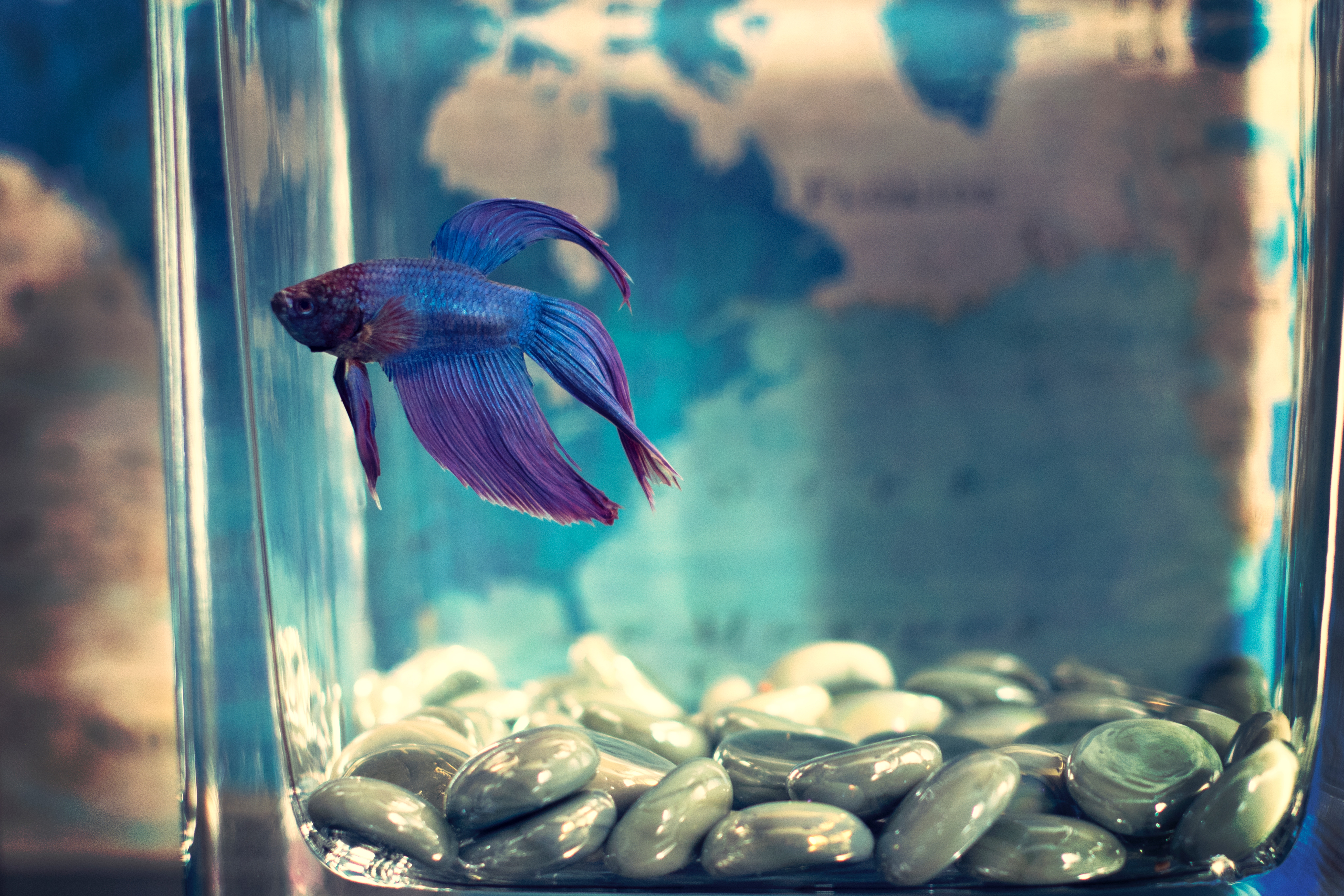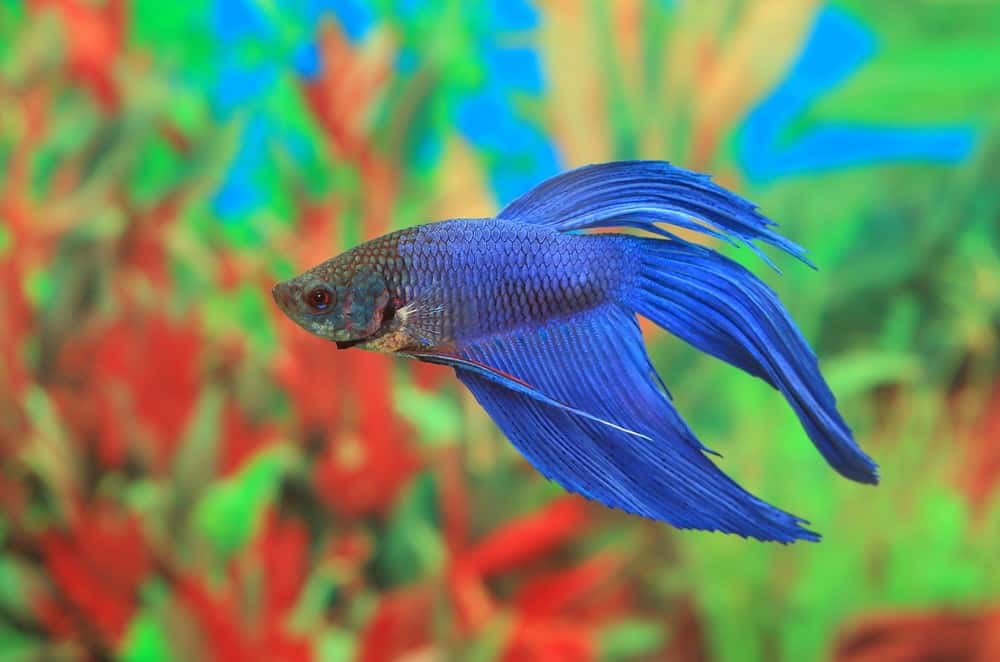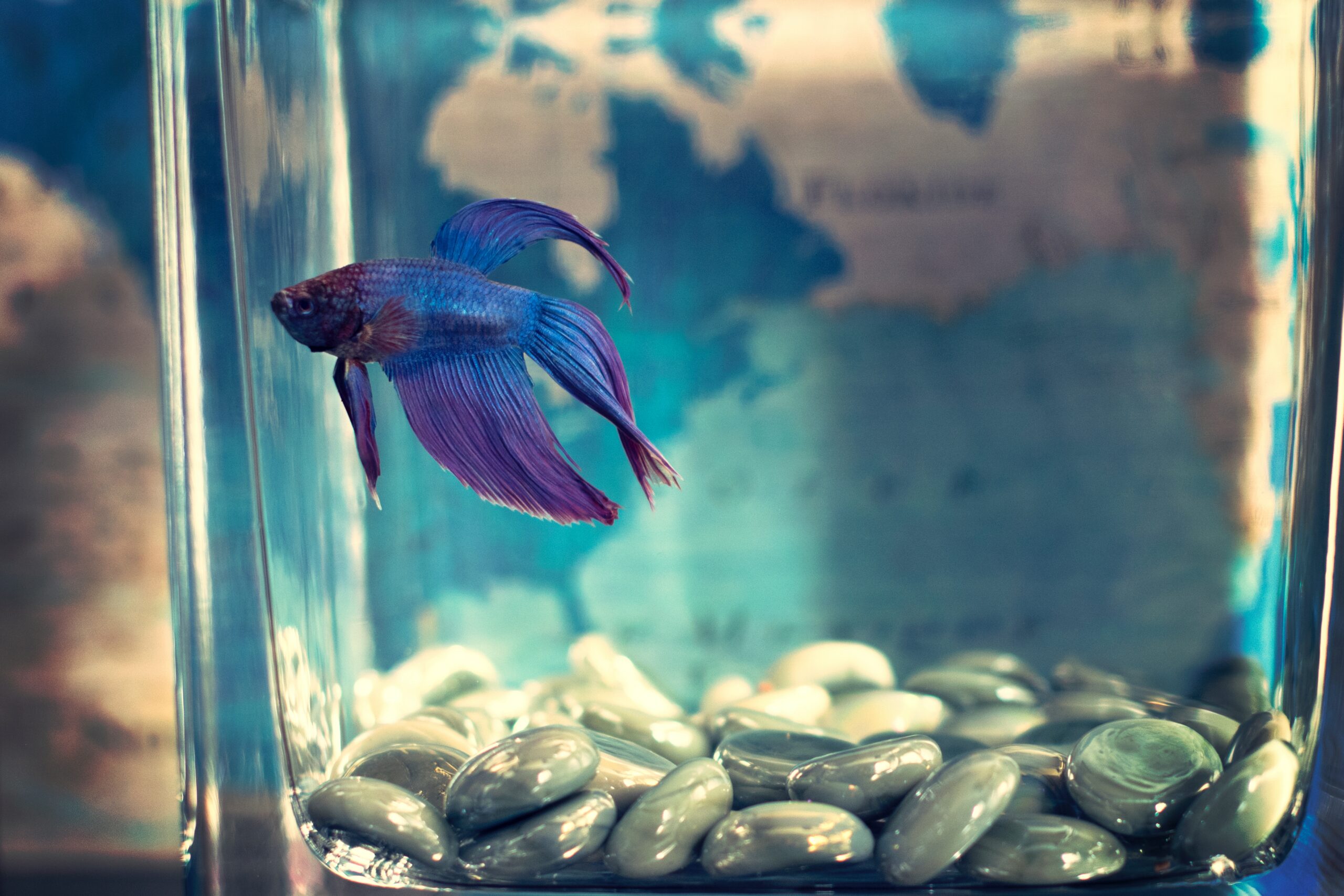Betta fish are popular pets known for their bright colors and unique personalities. However, as a responsible owner, it’s essential to understand their basic needs, including their feeding requirements. One of the most common questions betta fish owners ask is, “How long can a betta fish go without eating?”
Betta fish can live up to two weeks without food, but it’s not recommended to leave them unfed for that long. While they have a labyrinth organ that allows them to breathe air, they still need food to sustain their energy and overall health. In this article, we’ll explore how long a betta fish can survive without eating and what you can do to ensure their nutritional needs are met.
Betta fish can go up to 14 days without eating. However, it is not recommended to starve them for that long. Betta fish are carnivores and need a protein-rich diet to stay healthy. If you need to skip a feeding, it’s best to do it for no more than 2-3 days. Overfeeding is also a common problem, so make sure you are feeding your betta fish the right amount.

How Long Can a Betta Fish Go Without Eating?
Betta fish, also known as Siamese fighting fish, are one of the most popular fish species for aquariums. They are beautiful, colorful, and easy to care for. However, one question that many betta fish owners have is how long their fish can go without eating.
1. Betta Fish Can Go Without Food for Up to 14 Days
Betta fish are known for their ability to survive in harsh conditions, which includes going without food for extended periods. In general, a healthy betta fish can survive for up to two weeks without food. However, this is not something that should be done regularly or for long periods.
It is essential to note that just because betta fish can survive for two weeks without food does not mean they should. Betta fish need a balanced diet that includes protein, vitamins, and minerals to stay healthy. A lack of food can weaken their immune system, making them susceptible to diseases and infections.
To ensure your betta fish remains healthy, it is recommended to feed them once or twice a day, with small portions that they can consume within two minutes.
2. Factors That Affect How Long Betta Fish Can Go Without Food
Several factors can affect how long a betta fish can survive without food. These include the age, health, and size of the fish. Younger and healthier fish can go longer without food, while older or sickly fish may struggle to survive for even a few days.
Another factor to consider is the water temperature. Bettas are cold-blooded, and their metabolism slows down in cooler temperatures, which means they can survive longer without food in cooler water. However, colder water temperatures can also lead to health problems, so it is essential to keep the water temperature within the recommended range.
3. Benefits of Regular Feeding for Betta Fish
Regular feeding of betta fish is essential for their overall health and wellbeing. A balanced diet that includes high-quality pellets, live or frozen food, and vegetables helps to keep them healthy and active.
Feeding your betta fish regularly also helps to prevent overeating, which can lead to health problems such as constipation and swim bladder disorder. It is recommended to feed your betta fish small portions of food once or twice a day, rather than one large meal.
4. The Risks of Overfeeding Your Betta Fish
Overfeeding your betta fish can lead to several health problems, including constipation, swim bladder disorder, and obesity. These conditions can affect your fish’s ability to swim, eat, and even breathe.
To prevent overfeeding, it is essential to feed your betta fish small portions of food once or twice a day, rather than one large meal. You can also skip feeding your fish for one day a week to help them digest their food properly.
5. The Importance of a Balanced Diet for Betta Fish
A balanced diet is essential for the health and wellbeing of your betta fish. A diet that includes high-quality pellets, live or frozen food, and vegetables provides your fish with the necessary nutrients they need to thrive.
Protein is especially crucial for betta fish, as they are carnivorous and require a diet high in protein. However, too much protein can lead to health problems such as constipation and swim bladder disorder. It is recommended to feed your betta fish a balanced diet that includes a variety of foods to ensure they get all the nutrients they need.
6. Live and Frozen Food for Betta Fish
Live and frozen foods such as bloodworms, brine shrimp, and daphnia are excellent sources of protein for betta fish. These foods are also more natural for betta fish to consume, as they mimic their natural diet in the wild.
However, live and frozen foods can also carry diseases and parasites that can infect your fish. It is essential to purchase these foods from a reputable dealer and to rinse them thoroughly before feeding them to your fish.
7. Pellets for Betta Fish
High-quality pellets are an excellent source of nutrition for betta fish. Pellets are easy to store and can be fed to your fish without the risk of spreading diseases or parasites.
When choosing pellets for your betta fish, it is essential to look for those that are high in protein and free of fillers and preservatives. It is also recommended to soak the pellets in water for a few minutes before feeding them to your fish to prevent constipation.
8. Vegetables for Betta Fish
Vegetables such as peas, spinach, and zucchini are a great addition to a betta fish’s diet. These vegetables provide essential vitamins and minerals that help keep your fish healthy and active.
When feeding vegetables to your betta fish, it is essential to blanch them first to make them easier for your fish to digest. It is also recommended to only feed small portions of vegetables once or twice a week.
9. Conclusion
In conclusion, betta fish can survive for up to two weeks without food, but this is not recommended for their overall health and wellbeing. A balanced diet that includes high-quality pellets, live or frozen food, and vegetables is essential for the health of your betta fish.
Feeding your betta fish regularly and in small portions helps to prevent overeating and health problems such as constipation and swim bladder disorder. It is also essential to purchase food from reputable dealers and to rinse live and frozen foods thoroughly before feeding them to your fish.
10. FAQs
Q: Can betta fish eat human food?
A: No, betta fish should not eat human food. Human food can contain salt, sugar, and other ingredients that can be harmful to betta fish. It is essential to feed your fish a balanced diet that is specifically designed for them.
Q: How often should I feed my betta fish?
A: It is recommended to feed your betta fish once or twice a day, with small portions that they can consume within two minutes. Overfeeding can lead to health problems such as constipation and swim bladder disorder.
Q: Can betta fish eat vegetables?
A: Yes, betta fish can eat vegetables such as peas, spinach, and zucchini. These vegetables provide essential vitamins and minerals that help keep your fish healthy and active. It is recommended to blanch the vegetables first to make them easier for your fish to digest.
Frequently Asked Questions
How long can a Betta fish go without eating?
Betta fish are known to be able to survive for up to two weeks without food. However, this is not recommended as it can have negative effects on their health. A lack of food can cause the Betta fish to become lethargic and weak, making them more susceptible to diseases and infections. It can also lead to malnutrition and even death in extreme cases.
If you are planning to be away for an extended period, it is important to make arrangements for your Betta fish’s feeding. You can ask a friend or family member to feed them or invest in an automatic fish feeder that can dispense food at regular intervals.
What happens if a Betta fish doesn’t eat for a week?
If a Betta fish goes without eating for a week, they can become weak and lethargic. They may also become less active and lose their appetite altogether. A lack of food can put a strain on their immune system, making them more susceptible to diseases and infections.
If you notice that your Betta fish is not eating for a week, it is important to investigate the cause. It could be due to stress, illness, or a lack of appetite. You can try offering different types of food, changing the water quality, or adjusting the water temperature to encourage them to eat.
Can overfeeding harm a Betta fish?
Yes, overfeeding can harm a Betta fish. Betta fish have small stomachs and can only eat a small amount of food at a time. If they are overfed, they can become bloated and develop digestive problems. This can lead to constipation, swim bladder disease, and even death in extreme cases.
To avoid overfeeding, it is recommended to feed your Betta fish small amounts of food 2-3 times a day. You should also make sure to remove any uneaten food within a few minutes to prevent it from decomposing and polluting the water.
What is the best food for Betta fish?
Betta fish are carnivores and require a diet that is high in protein. The best food for Betta fish is a high-quality pellet or flake food that is specifically formulated for their nutritional needs. Look for a food that contains at least 40% protein and is made with natural ingredients.
In addition to pellets or flakes, you can also feed your Betta fish frozen or live foods such as bloodworms, brine shrimp, or daphnia. These foods can provide additional nutrients and help to vary their diet.
How often should you feed a Betta fish?
You should feed your Betta fish small amounts of food 2-3 times a day. Betta fish have small stomachs and can only eat a small amount of food at a time. Overfeeding can lead to digestive problems, bloating, and other health issues.
It is important to make sure that the food you provide is high in protein and specifically formulated for Betta fish. You should also remove any uneaten food within a few minutes to prevent it from decomposing and polluting the water.

HOW LONG CAN BETTA FISH SURVIVE WITHOUT FOOD?
In conclusion, betta fish are intelligent and resilient creatures that can survive for extended periods without food. However, it is important to ensure that they receive a balanced diet to maintain their health and wellbeing.
If you are planning a short trip, it is generally safe to leave your betta fish without food for up to three days. However, if you are going to be away for longer, it is essential to make arrangements for someone to feed your fish or use an automatic feeder.
Remember, while betta fish can survive without food for a while, it is not ideal for their long-term health. To keep your betta fish happy and healthy, always make sure they are fed a balanced diet and have access to clean water and a suitable environment.

